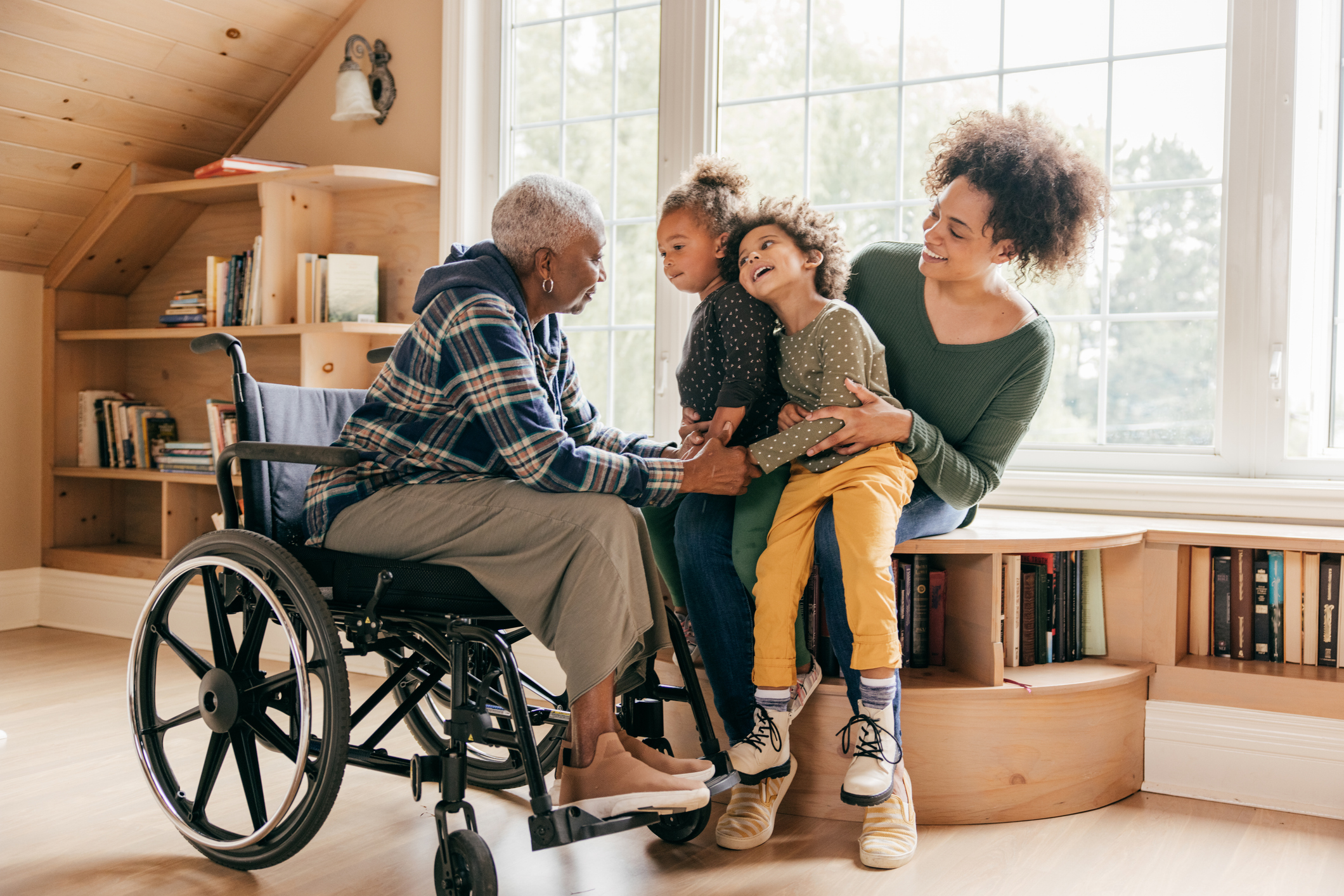Trauma can have a profound and lasting impact, not just on the individuals who experience it directly, but also on their children, grandchildren, and even future generations. This phenomenon, known as intergenerational trauma, is a complex and often misunderstood concept that is gaining increasing attention in the fields of mental health, addiction recovery, and community healing.
As research delves deeper into the intricate ways in which trauma can be passed down through the generations, it’s becoming clear that understanding and addressing this issue is crucial for breaking cycles of suffering and fostering resilience. Whether the trauma stems from personal experiences, cultural or historical events, or a combination of factors, the ripple effects can be far-reaching and deeply entrenched.
By shedding light on this complex phenomenon, we aim to empower people with the knowledge and tools to interrupt the cycle of trauma and build a brighter, more resilient future.
What Is the Definition of Intergenerational Trauma?
Intergenerational trauma, also known as transgenerational or multigenerational trauma, refers to the transmission of traumatic experiences and their psychological and physiological effects from one generation to the next. This can occur through different ways:
Learned Behaviors and Coping Mechanisms
When individuals experience significant trauma, such as abuse, neglect, or exposure to violence, how they cope with and respond to these experiences can become ingrained in their behavior and interpersonal patterns. These coping mechanisms, whether healthy or unhealthy, can then be passed down to their children, who may internalize and replicate them without even realizing the underlying trauma.
Epigenetic Changes
Emerging research in epigenetics suggests that traumatic experiences can lead to modifications in gene expression, which can then be passed on to subsequent generations. These epigenetic changes can influence an individual’s susceptibility to various mental health and physical health issues, including addiction, depression, and anxiety. More about this topic is below.
Attachment and Parenting Styles
The quality of the attachment between a parent and child can significantly impact the child’s emotional and psychological development. Trauma can disrupt a parent’s ability to form secure attachments, leading to patterns of insecure attachment, emotional distance, or even abusive behaviors that are then perpetuated in the next generation.
Cultural and Historical Trauma
Certain communities and populations have endured collective traumas, such as genocide, slavery, or systemic oppression, that can have far-reaching consequences for multiple generations. The legacy of these traumatic events can manifest in ongoing mental health challenges, cultural disconnection, and a sense of collective grief and loss.
The common thread is that unresolved trauma can become a burden that is passed down through the generations, shaping the lives and experiences of those who never directly experienced the original trauma.
The Role of Epigenetics in Intergenerational Trauma
Epigenetics refers to the study of how environmental factors, including traumatic experiences, can influence the expression of genes without actually altering the DNA sequence. Epigenetics in intergenerational trauma has become one of the most fascinating and rapidly evolving areas of research.
Emerging research suggests that the physiological and psychological effects of trauma can be passed down through generations. For example, studies have shown that the children and grandchildren of individuals who survived the Holocaust or other major historical traumas may exhibit similar biological markers and increased susceptibility to certain mental health conditions, even if they did not directly experience the original trauma.
The mechanisms behind epigenetics in intergenerational trauma are still being actively investigated, but some of the proposed pathways include
- Alterations in the stress response system: Traumatic experiences can lead to changes in the way the body regulates the release of stress hormones, such as cortisol, and these modifications can be passed down to offspring.
- Modifications in gene expression: Trauma can trigger epigenetic changes that influence the way certain genes are expressed, affecting an individual’s vulnerability to mental health issues or physical health problems.
- Changes in the intrauterine environment: Maternal exposure to trauma during pregnancy can potentially influence the development and epigenetic programming of the fetus, with lasting effects on the child’s health and wellness.
While the scientific understanding and underlying factors of epigenetics in intergenerational trauma are still evolving, this field of research holds tremendous promise for developing more targeted and effective interventions to interrupt the cycle of trauma and promote healing across generations.
The Impact of Intergenerational Trauma
The effects of intergenerational trauma can be vast and profoundly impact an individual’s physical and mental health, as well as their relationships, sense of identity, and overall well-being. Some of the effects include
Psychiatric and Psychological Symptoms
Individuals who have inherited trauma may experience a range of mental health challenges, including:
- Anxiety and guilt
- Depression
- Post-traumatic stress disorder (PTSD)
- Substance abuse and addiction
- Dissociation
- Hypervigilance and difficulty regulating emotions
Interpersonal and Relational Difficulties
Trauma can also disrupt an individual’s ability to form healthy attachments and navigate interpersonal relationships. This can manifest in:
- Difficulty with trust and intimacy
- Challenges in parenting and caregiving
- Patterns of abusive or dysfunctional relationships
- Intergenerational cycles of abuse or neglect
Cultural and Identity-Related Impacts
For individuals and communities who have experienced historical or cultural trauma, the effects can also be felt in terms of their sense of cultural identity, belonging, and connection to their heritage. This can lead to:
- Damaged cultural identity and a sense of disconnection
- Shame, guilt, and feelings of not belonging
- Difficulty preserving and passing on cultural traditions and practices
- Mistrust of authority figures and institutions
Physical Health Consequences
Emerging research suggests that the physiological effects of trauma can also be passed down through generations. This can include:
- Higher rates of chronic health conditions, such as heart disease and obesity
- Increased susceptibility to infectious diseases
- Epigenetic changes that influence biological stress responses
Recognizing the Signs of Intergenerational Trauma
Identifying the signs of intergenerational trauma can be a crucial first step in breaking the cycle and facilitating healing. Some common indicators that an individual may be grappling with the effects of trauma passed down through the generations include:
- Unexplained feelings of anxiety, depression, or other mental health challenges
- Difficulty forming and maintaining healthy relationships
- Patterns of substance abuse or addictive behaviors
- Persistent feelings of shame, guilt, or a lack of self-worth
- Difficulty regulating emotions or managing stress
- A sense of disconnection from one’s cultural or family heritage
- Unexplained physical health issues or chronic conditions
It’s important to note that the manifestation of intergenerational trauma can vary significantly from person to person, and the symptoms may not always be immediately apparent. Additionally, some individuals may be unaware of the traumatic experiences of their ancestors, making it even more challenging to recognize the underlying causes of their struggles.
Intergenerational Trauma and Addiction
The relationship between intergenerational trauma and addiction is a complex and deeply intertwined one. Numerous studies have shown that individuals who have experienced trauma, whether directly or through their family history, are at a significantly higher risk of developing substance abuse disorders (SUDs) and other addictive behaviors.
One of the critical reasons for this link between intergenerational trauma and addiction is how trauma can shape an individual’s coping mechanisms and emotional regulation abilities. When faced with the overwhelming emotions and physiological responses associated with trauma, some individuals may turn to substance misuse and abuse as a means of self-medication and temporary relief.
Additionally, the disruption to healthy attachment and parenting styles that often accompany intergenerational trauma can also contribute to the development of addiction. Children who grow up in environments where emotional support and healthy coping strategies are lacking may be more likely to seek out unhealthy coping mechanisms, including substance abuse, as a way to manage their emotional pain and distress.
Addressing the role of recovery of intergenerational trauma in addiction recovery is crucial, as it requires a more holistic and trauma-informed approach to treatment. By acknowledging the underlying trauma and providing targeted support, individuals can work toward breaking the cycle of intergenerational trauma and addiction and building a foundation for long-term recovery and healing.
Strategies for Healing Intergenerational Trauma
Overcoming the effects of intergenerational trauma is a complex and often challenging process, but it is possible with the proper support and interventions. Below are some key strategies to help individuals, families, and communities heal from the impacts of trauma passed down through the generations.
Acknowledge and Validate the Trauma
The first step in the healing process is to recognize and acknowledge the existence of intergenerational trauma. This involves validating the experiences of one’s ancestors and the ongoing impact these traumatic events have had on the individual and their family.
Engage in Trauma-Informed Therapy
Seeking the support of mental health professionals who specialize in trauma-informed care can be instrumental in the healing process. Intergenerational trauma therapists can be invaluable as they are specially trained in intergenerational trauma treatment models. Depending on the individual’s needs and the specific dynamics of their family system, this may involve individual therapy, family therapy, or even group therapy. Therapists can also recommend helpful intergenerational trauma books that a person can read in their free time.
Explore Cultural and Ancestral Healing Practices
Many cultures and communities have traditional healing practices and rituals that can be powerful tools for addressing intergenerational trauma. These practices, such as storytelling, ceremony, or reconnecting with ancestral traditions, can help individuals and families reclaim their cultural identity and find a sense of belonging and resilience.
Foster Open Communication and Intergenerational Dialogue
Encouraging open and honest communication about the family’s history and the impact of trauma can be a crucial step in the healing process. This may involve creating opportunities for elders to share their stories or for younger generations to express their experiences and perspectives. Those experiencing past trauma can also read intergenerational trauma books about their descendants or ancestors to help with healing and closure.
Promote Resilience and Positive Coping Strategies
Developing healthy coping mechanisms, building a solid support network, and cultivating a sense of personal and cultural empowerment can all be powerful antidotes to the effects of intergenerational trauma. These practices may involve mindfulness, self-care, community engagement, and intentionally passing down positive traditions and values. An intergenerational trauma therapist can also help guide the way through difficult situations.
Address Systemic and Societal Factors
In many cases, the trauma experienced by individuals and families is rooted in more significant societal and systemic issues, such as racism, oppression, or historical injustices. Addressing these underlying factors through advocacy, activism, and community-based initiatives can be essential to healing.
Intergenerational Trauma and Resilience
It’s important to acknowledge that while the impacts of intergenerational trauma can be profound and far-reaching, they do not necessarily determine an individual’s or a community’s fate. Many people who have inherited trauma have also demonstrated remarkable resilience and the ability to break the cycle of suffering.
Resilience in the face of intergenerational trauma can manifest in a variety of ways, such as:
- Developing robust coping mechanisms and healthy self-care practices
- Fostering positive, supportive relationships and a sense of community
- Engaging in cultural and ancestral healing practices
- Advocating for systemic change and social justice
- Passing down stories of survival and strength to future generations
- Seeking out trauma-informed therapy and support services
By cultivating resilience and addressing the underlying trauma, individuals and communities can reclaim their power, heal the wounds of the past, and build a more hopeful and empowered future.
If you or a loved one is struggling with addiction, Mountainside can help.
Click here or call (888) 833-4676 to speak with one of our addiction treatment experts.

 By
By 







